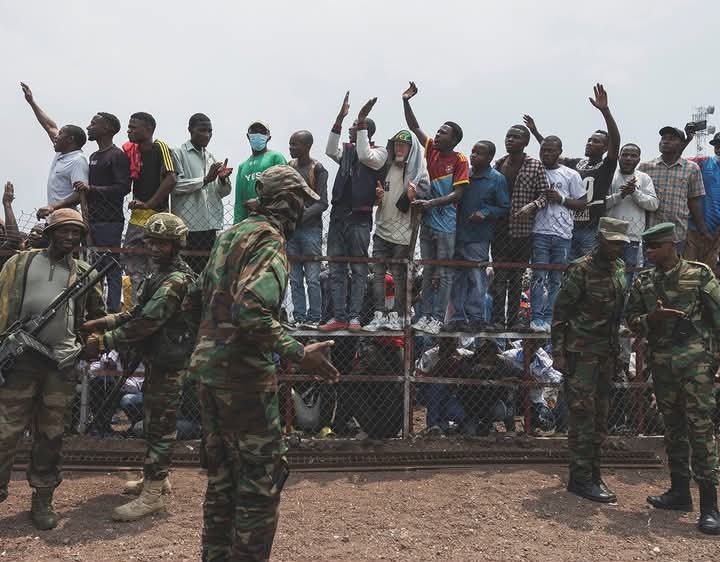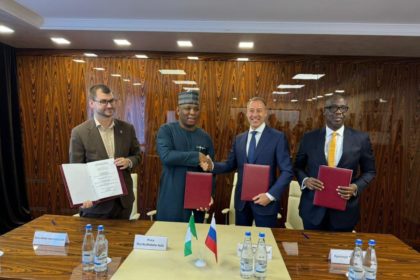By Adeyemi Adekunle
The Democratic Republic of Congo’s (DRC) commitment to accountability, authorities are set to put at least 75 soldiers on trial for violence against civilians, including charges of murder and looting, following their premature retreat in the face of advancing M23 rebel forces. This trial marks a pivotal moment in a region grappling with a devastating security crisis as the M23 rebels continue to assert control over strategic areas in the eastern province of South Kivu.
The military prosecutor’s office announced that the trial would commence on Monday, a date that has grown increasingly crucial as the DRC grapples with the aftermath of violence that has reverberated across communities. The soldiers are being prosecuted not only for their abandonment of the frontlines but also for heinous acts committed against civilians, including rape and other forms of violence, exacerbating the already fraught humanitarian situation.
The unrest intensified following the M23’s major offensive in late January, when the rebels captured Goma, the largest city in the east. The United Nations has reported widespread human rights violations, including summary executions and sexual violence, implicating not only M23 fighters but also DRC soldiers and pro-government militias. The U.N. human rights office has raised alarms about the impunity that has characterized the region, with civilians bearing the brunt of a conflict that has deeply entrenched its roots in historical grievances and political instability.
In a cautious response, the DRC government has refrained from commenting directly on the conduct of its troops but has called upon the U.N. to investigate the atrocities it attributes to M23 rebels and their alleged support from neighboring Rwanda.
Rwanda, however, has categorically denied any involvement and deflected responsibility for the violence that has surged across the border. The M23 factions have also remained silent in the face of inquiries.
Despite announcing a unilateral ceasefire, M23 rebels—composed primarily of Tutsi fighters—have continued their advance, seizing control of key territories, including the town of Nyabibwe, situated around 70 km north of Bukavu, the provincial capital. Reports from civil society sources indicate that the situation in the region remains dire, with deserting soldiers reportedly committing atrocities in the wake of their retreat.
A tragic account from Kavumu, a town located just 35 km north of Bukavu, reveals chilling tales of violence, where fleeing soldiers allegedly killed ten civilians, including seven individuals simply enjoying a night out at a bar.
The military prosecutor’s office confirmed that the 75 soldiers currently facing trial were apprehended for abandoning their posts during the conflict. These charges, which include rape, murder, looting, and revolt, signify a critical assertion of accountability in the context of military conduct.
The prosecutor’s office has further indicated that additional soldiers, apprehended in other areas for similar offenses, may soon face equal scrutiny in the courtroom.
Local leaders, like civil society advocate Leonidas Tabaro, have expressed deep concerns regarding the chaotic situation, stressing that “acts of looting by our uncontrolled soldiers who have fled in the face of the enemy are still being recorded.”
The desperation and lawlessness that accompany desertion are proving detrimental to already vulnerable civilian populations, further complicating an already dire humanitarian landscape.
Provincial army spokesman Nestor Mavudisa has publicly committed to ensuring that rogue soldiers face consequences for their actions, urging local communities to remain calm despite the palpable unrest.
His statements reflect a broader effort by DRC authorities to restore order and reassert control in a region that has long been marred by violence, corruption, and chronic instability.
The context of this trial is steeped in a complex interplay of historical tensions, ethnic strife, and geopolitical maneuvering involving regional actors. The ongoing conflict in the DRC is not merely a local issue but a crisis that calls for international attention and intervention.
The international community, including organizations like the U.N., must prioritize addressing human rights abuses while also facilitating pathways for sustainable peace and reconciliation in the region.
As the trial of these soldiers unfolds, it will be a litmus test for the DRC’s military justice system and its commitment to uphold accountability in the face of overwhelming challenges. How the government handles this case may influence the broader narrative of military discipline and civil protection going forward, signaling a potential turning point in a protracted conflict that has claimed countless lives and displaced millions. The eyes of the world will be watching closely as the quest for justice amid chaos continues in the heart of Africa.




